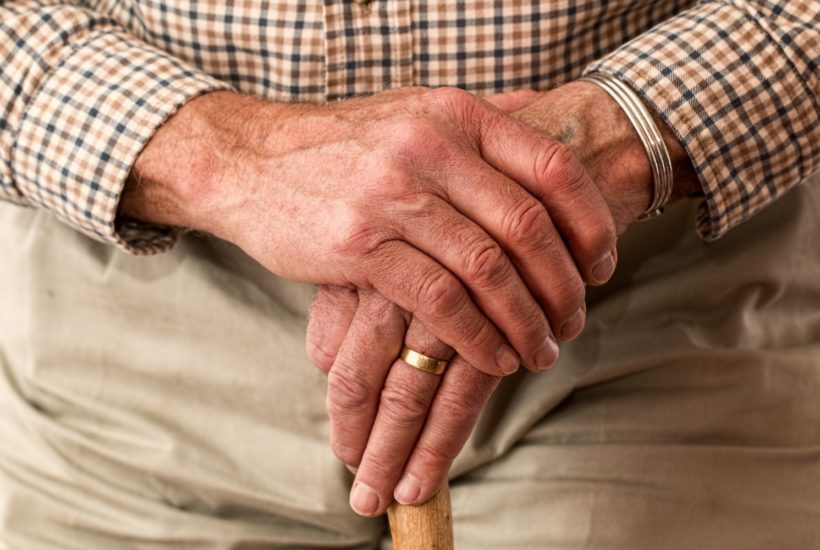Cannabis
Experts debate cannabis potential in elderly health
Medicinal cannabis is a therapy that has garnered national attention. Controversies surrounding legal, ethical, and societal implications associated with use; safe administration, packaging, and dispensing; adverse health consequences and marijuana intoxication; and therapeutic indications based on limited clinical data represent some of the complexities associated with this treatment.

The use of CBD (cannabidiol) in the elderly population for medical purposes was the subject of a debate promoted in Rio de Janeiro by the Brazilian Society of Geriatrics and Gerontology.
Cannabinoids are substances derived from cannabis, considered illicit in many countries around the world, including Brazil.
CBD has possible treatments against chronic pain, dementia and other common problems in the elderly. The therapeutic use of cannabis is defended by researchers who add a scientific approach to the subject.
Ivan Abdalla, a physician at the Alzheimer’s Dementia Center of Psychiatry Institute of the Federal University of Rio de Janeiro (IPUB-UFRJ), presented international studies on cannabinoids and dementia.
The studies point out the need to deepen our understanding of the effects on real-life patients before cannabis is prescribed as a treatment in the field. “We have evidence that it may have an effect, but we have to walk a few steps to get there,” he said.
The researcher presented a mapping made by the Canadian Agency on Drugs and Health Technologies (CADTH) that surveyed 12 studies conducted between 1997 and 2017 in six countries: Canada, United States, United Kingdom, Germany, Switzerland, Netherlands, and Israel.
Despite having considered the low-quality research and high risk of bias, the agency still concluded that it indicates that cannabinoids can be effective against some symptoms of dementia.
Medical cannabis market attracts companies from around the world
The European cannabis market is set to become one of the largest and most important in the world. The potential customer base in Europe dwarfs any other, even North America.
One of the companies that want a seat at the table in this new cannabis frontier is World High Life (NEX: LIFE). The company’s stated goal is to become the world’s most important CBD and medical cannabis player.
The main focus of the company is to identify investment opportunities and to acquire companies that are operating within the burgeoning legal medical cannabis, hemp and CBD industries.
World High Life has acquired UK’s leading CBD company Love Hemp Ltd. in an all-shares transaction valued at £9 million ($11.5 million). Love Hemp produces a variety of CBD products such as sprays, vapes, oils, edibles, CBD-infused beverages, and cosmetics.
Love Hemp sells its products in 1,200 UK high street stores. Additionally, the company has agreements with big companies such as Boots, Tesco, Superdrug and Sainsbury’s.
Evidence for clinical situations

“They have evidence for some clinical situations, but for dementia, we still don’t have that answer. There is potential, but we are still in an experimental moment,” says the researcher. “It is necessary to stimulate research and debate and break down barriers to this, rather than use it.”
In Brazil, the Resolution of 2.113/2014 of the Federal Council of Medicine restricts the use of cannabidiol for the treatment of children and adolescents with epilepsy, who have been refractory to conventional therapies.
Only neurologists, neurosurgeons, and psychiatrists can make these prescriptions. The recommendation of natural cannabis or any other derivative other than cannabidiol is prohibited by resolution.
The debate was mediated by one of the founders of the Palliative Care Commission of the SBGG, Claudia Burlá, who says she has no doubts that cannabinoids can have a great therapeutic potential for the elderly.
“We have to study, we cannot remain in reductionism and amoralism,” she says, seeing this potential for discoveries in the treatment of chronic pain, epilepsy, and nausea resulting from chemotherapy.
She warns that caution must be exercised in the debate, so as not to create too high an expectation in society in relation to the therapeutic possibilities of cannabinoids. “No panacea,” she emphasized at the beginning of the discussion, which filled one of the rooms of the congress.
The president of SBGG, Carlos André Uehara, remembers that any medical prescription for the elderly still depends on more studies, but that the role of a scientific society is to support the debate. “It does not prevent us from having the discussion.”
About the congress
The debate on cannabinoids occurs in a program that brought contemporary themes to the congress of geriatrics and gerontology, such as the fight against prejudice, social security, LGBT aging and the use of technology to assist the elderly at a distance.
“We have to discuss the gender issue, the old man is not an ‘asexual being,’ and has the issue of sexually transmitted diseases,” remembers Uehara, who highlights the importance of preparing geriatricians to deal with various elderly people. “The professional has to understand that there are differences. The world is not binary. It is not zero or one, but yes or no.”
Population aging makes the debate of quality of life in old age urgent for the Brazilian population, and the doctor calls the attention that the transition of the country to a society with more elderly depends on public and individual planning.
“If we do not program ourselves and do not make a demographic transition in better conditions, this will impact on health and even on Social Security. Aging is planning.”
__
(Featured image by Pixabay via Pexels)
DISCLAIMER: This article was written by a third party contributor and does not reflect the opinion of Born2Invest, its management, staff or its associates. Please review our disclaimer for more information.
This article may include forward-looking statements. These forward-looking statements generally are identified by the words “believe,” “project,” “estimate,” “become,” “plan,” “will,” and similar expressions. These forward-looking statements involve known and unknown risks as well as uncertainties, including those discussed in the following cautionary statements and elsewhere in this article and on this site. Although the Company may believe that its expectations are based on reasonable assumptions, the actual results that the Company may achieve may differ materially from any forward-looking statements, which reflect the opinions of the management of the Company only as of the date hereof. Additionally, please make sure to read these important disclosures.
First published in EXAME, a third-party contributor translated and adapted the article from the original. In case of discrepancy, the original will prevail.
Although we made reasonable efforts to provide accurate translations, some parts may be incorrect. Born2Invest assumes no responsibility for errors, omissions or ambiguities in the translations provided on this website. Any person or entity relying on translated content does so at their own risk. Born2Invest is not responsible for losses caused by such reliance on the accuracy or reliability of translated information. If you wish to report an error or inaccuracy in the translation, we encourage you to contact us.

-

 Crowdfunding1 week ago
Crowdfunding1 week agoPMG Empowers Italian SMEs with Performance Marketing and Investor-Friendly Crowdfunding
-

 Markets5 days ago
Markets5 days agoMarkets Wobble After Highs as Tariffs Rise and Commodities Soar
-

 Markets2 weeks ago
Markets2 weeks agoThe Big Beautiful Bill: Market Highs Mask Debt and Divergence
-

 Africa2 days ago
Africa2 days agoORA Technologies Secures $7.5M from Local Investors, Boosting Morocco’s Tech Independence























